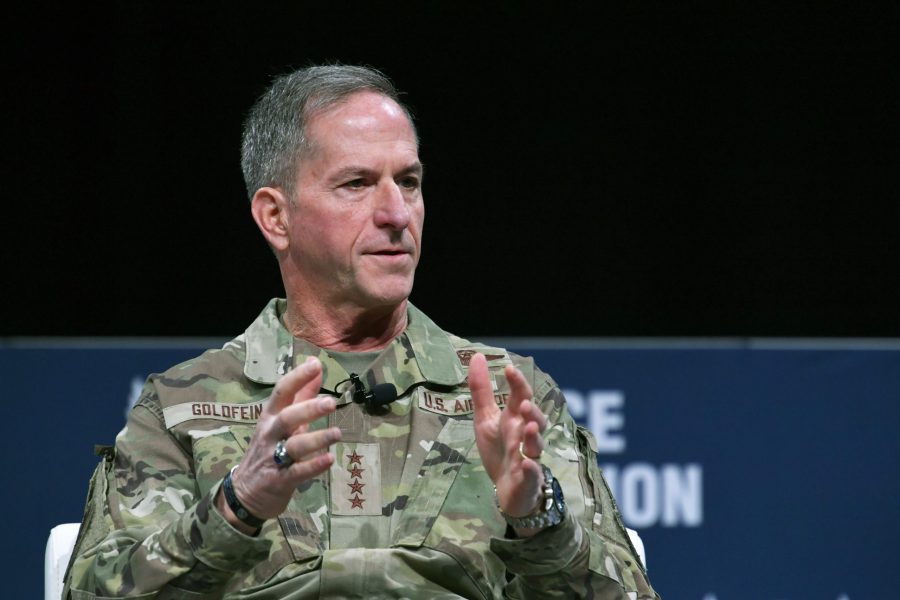Future connectivity will eventually buy down the “near-term risk” taken in the fiscal 2021 budget with the retirement of a number of important here-and-now capabilities, Air Force Chief of Staff Gen. David Goldfein told reporters Feb. 27. Members of Congress and staffers who have taken a briefing on the Joint All-Domain Command and Control capabilities the Air Force wants in trade for some combat capacity are backing the moves, Goldfein said.
“The risk is real,” Goldfein said. If money was unlimited, “We would not be asking commanders to take short-term risk. But if you don’t do that, you never buy your future.”
By investing in connectivity between all sensors and shooters across the services, “you actually start exponentially driving up your ability to be able to operate without a significant additional investment because you’re making better use of what you already have. So that’s why this is so foundational,” Goldfein explained.
“I believe if we get the Joint All-Domain Command and Control investment piece right, you actually drive risk down over time because you’re able to use tools that today you’re not able to use,” because they’re not connected.
He acknowledged that regional combatant commanders have to “solve a problem today,” but he and Secretary Barbara Barrett have to craft a force that “will win in 2030.” He defined “short-term risk” as about two years. “That’s the timeframe [regional commanders] have and the missions they’ve been given.” It’s been a “hard discussion to have” with them, he said.
Goldfein said he expects contentious questioning about the moves in testimony next week.
The Air Force is taking down its numbers of B-1 bombers, A-10 close air support aircraft, unmanned Global Hawk spyplanes, C-130 tactical transports, and aerial tankers to fund the connectivity initiatives.
Goldfein said he and Barrett have more than doubled the usual number of pre-testimony visits to congressional offices in the run-up to budget testimony, and began those briefings sooner than usual. Those members of Congress and staffers who that have taken the briefing about JADC2 “have been overwhelmingly supportive. We are going to continue giving briefings to every staffer who will take them … from now to endgame. Because once they see what we’re buying … it’s an ‘aha’ moment,” Goldfein reported.
Regional commanders also have come around to the idea, Goldfein noted. As to when the “risk” will be bought down, however, he said, “in this journey, you never get to a date when risk is removed. The threat is changing. The question is, can we change at a pace that’s relevant, stays ahead of the threat?”
